Key Takeaways
- Chlorella is a green algae used as a health food supplement, often alongside spirulina.
- It’s often claimed to improve immunity, gut health, and remove toxins from the body.
- Currently, though, there’s very little research on chlorella, and it doesn’t have any well-established benefits, so it seems to be overhyped.
In a world plagued by vitamins, minerals, and actual food supplements that taste good I crave a more, how do we say, “Stage 4 Vegan” approach to things. Plants lean towards the sun, clearly this indicates some sensory organs that make them off limits.
Time to set sail and scoop up the phytoplankton and algae; num-num. Nothing was harmed in this process aside from the salmon stuck in the rudder, and so now I’ll proceed to write a stern letter to the makers of this boat.
. . . or so I would think would be the thoughts of the the first guy to look at pond scum and decide “hmm, I want to eat that.”
Supplemental algae isn’t common, but it’s interesting: plant compounds that don’t come from land but rather the sea tend to be seaweed products, many of which have a ton of super cool and unique compounds in them.
So what about the big daddy of sea vegetables? The hipster green who was cool to consume before all the other sea veggies came into play?
What about chlorella?
Some say that it can improve immunity, gut health, and remove toxins from the body.
Others simply view it as a random “green thing” that’s sold because people buy it.
So, who’s right?
In this article, you’re going to learn what chlorella is, why people take it, what it does and doesn’t do for your body, whether or not it’s safe, and more.
Let’s get started.
- What Is Chlorella?
- Why Do People Supplement with Chlorella?
- What Are the Benefits of Chlorella?
- What Is the Clinically Effective Dosage of Chlorella?
- What Types of Results Should I Expect From Taking Chlorella?
- Does Chlorella Have Any Side Effects?
- What Is the Best Form of Chlorella?
- The Bottom Line on Chlorella
Table of Contents
+What Is Chlorella?
Chlorella is an algae that’s commonly supplemented for the purpose of improving general health. It’s one of the two most popular algae supplements, the other one being spirulina, and is commonly sold as “cracked wall” chlorella vulgaris, the scientific name for chlorella.
Here’s what it looks like under a microscope:
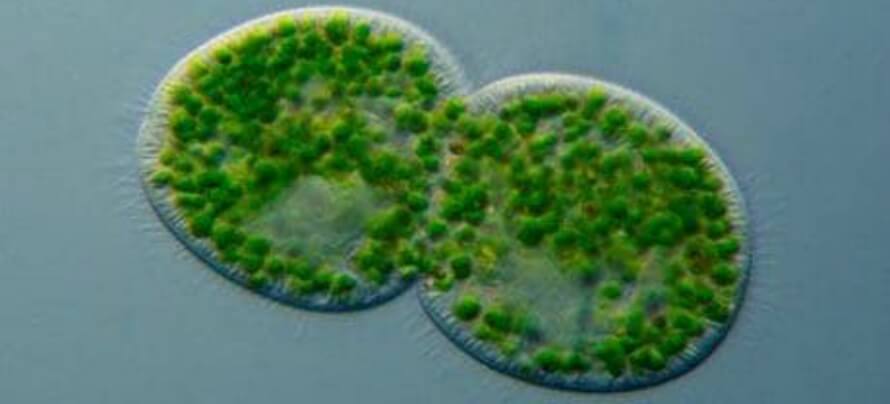
And this is the powdered form:
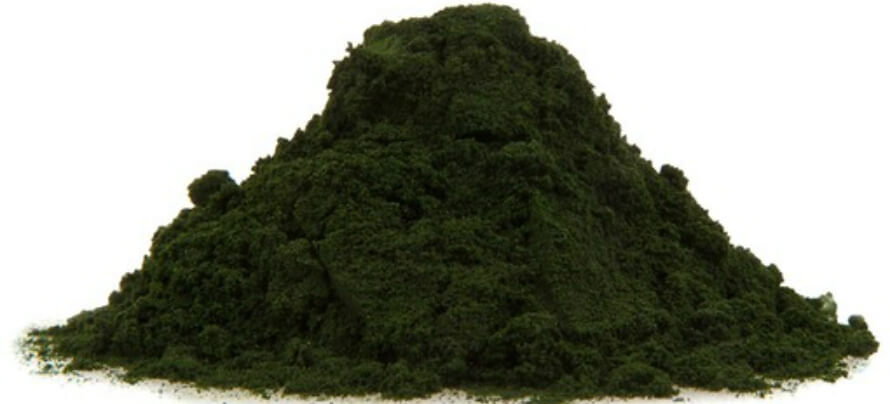
Even when compared to other vegetables, it’s pretty dense in micronutrients, mostly since algae don’t have the luxury of growing in size due to how they’re grown. As such, the nutrition is limited to a small area which led us humans to seek it out for consumption.
I mean, why consume 50 grams of a powdered supplement when you can supplement 10 grams of it for an equal or lower financial cost?
Why Do People Supplement with Chlorella?
Chlorella is, arguably, the prototypical “green” supplement.
By this, I mean it’s a compound that people shove in their face without question because it carries the “healthy” label. I sort of see this as a side-effect of telling kids to eat their vegetables “just because”; this mindset of vegetables being healthy and unquestionable can apply to other things.
So why do people supplement with chlorella? Because it’s green, so it’s obviously good for you.
Pessimism aside . . . most arguments for chlorella focus on its nutrient content. While it’s highly variable based on the growing conditions of the plant, overall it tends to be quite high in protein, dietary minerals including magnesium, and chlorophyll based on weight. (In other words, even if the absolute amounts of these compounds aren’t super high, chlorella has a lot of them per gram).
Even the high protein and magnesium content alone is pretty interesting, but people also supplement with chlorella not for nutritional purposes but for boosting immunity, detoxifying the body, supporting the liver, losing weight, and generally improving their health.
Honestly, pretty much everything that a “detox” program claims to do has also been applied to chlorella. As frequent readers of this blog may have realized, I don’t like detox programs; a bunch of marketers who got their hands on laxatives and a thesaurus.
But still, are any of the claims valid?
Some, actually . . . sort of hard to admit that as a spirulina fanboy (the clearly superior algae) but some . . .
What Are the Benefits of Chlorella?
While chlorella is seen as a panacea in some crowds, there are only a handful of claims that are either very common or otherwise have some decent evidence behind them.
Chlorella and Detoxification
Chlorella is most commonly claimed to be a detoxifying agent and is commonly found in shakes and supplements within “detox” programs.
While “detox” programs tend to be nothing more than hype and marketing, chlorella is well known to have certain detoxifying potential and some of these effects may also apply to humans.
As a general overview, chlorella is well known to bind to minerals. There are plenty of studies ex vivo (outside of living creatures) and animal studies showing benefits such as reduced accumulation of heavy metals or increased removal of them from the body, and radioactive strontium is one example.
Chlorella may also remove dioxins which has, at least once, been replicated in breast-feeding women. The common thread here is that chlorella seems to be good at removing fat soluble or metal toxins.
When it comes to human studies we have some studies on heavy minerals but also, and more notably, both polyaromatic hydrocarbons (PAHs) and heterocyclic amines (HCAs).
As a small debriefing, PAHs are a group of compounds known to promote cancer and are associated with smoke formation (including the smoking of meat) and HCAs are also a cancer promoting compound produced during certain meat cooking styles like smoking.
When it comes to meat, the best way to cook (for health at least) is slowly and alongside some antioxidants like a marinade or veggie-filled broth. The worst way to cook meat for health, but definitely not taste, is heavy searing and smoking of the meat.
Anywho, chlorella has a preliminary study suggesting supplementation could mitigate the effects of PAHs (although to be fair, a study of 12 people measuring a single urinary biomarker is not the most convincing science) and an equally small study showing reduced urinary metabolites of the HCAs.
Ultimately, chlorella seems to have a lot of animal evidence suggesting a detoxifying ability for heavy metals and some environmental toxins. Human evidence is limited but also suggests an ability to remove meat-based carcinogens from the body.
Now, you may be asking how chlorella does this. It seems pretty simple, the chlorophyll (yes, the thing that makes plants green) simply binds to stuff and removes it from the body.
There’s a process in the body called enterohepatic circulation where fatty acids, bile acids, and things that are fat soluble jump from the intestines to the liver, chill there a bit, and get shunted back into the intestines. Many fat soluble toxins (as well as nutrients) are caught up in this circulation.
So in this scenario, if the liver was the conference center and the intestines the street, chlorophyll and some other agents may act as taxis, binding to fat-soluble things and bringing them out of the body (through the colon).
There’s even some evidence of the link between chlorella and HCAs being due to the chlorophyll content.
Chlorella is a convenient source of chlorophyll, about 1 to 4% of weight by most estimates online (and likely varies by source), but it’s by no means the only source. Any plant that’s green can count. Green seaweed, green tea, and as this untranslated study ever so eloquently puts it, “green vegetable.”
So ultimately, chlorella is a convenient and relatively dense source of chlorophyll and chlorophyll itself may have some chelating role to many toxins; removing them from the body like a taxi service.
However, right now there doesn’t seem to be anything unique about this process. Chlorella may be like the protein supplement of chlorophyll; impressive merely due to its convenience.
Chlorella and Immune Support
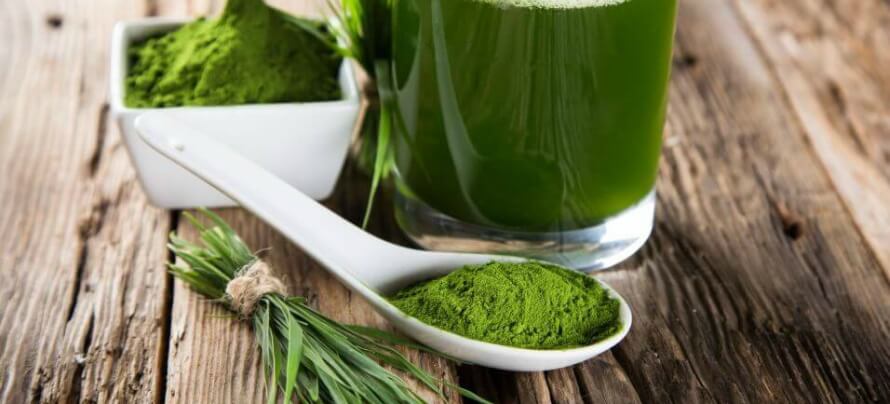
While many claims about chlorella either have no evidence or limited evidence, the effects of chlorella on immunity have repeated studies showing similar benefits (which goes a long way in putting faith into something).
Specifically, we’re looking at immunoglobulin A (IgA); an immune system mediator that can be measured in saliva and thought to reflect the ability of the body to fight infections. As a general rule, more IgA is a marker for healthy immune function.
When looking at these human studies on chlorella, we see an increase in IgA in otherwise healthy subjects, more IgA in the breast-milk of lactating women, and the expected reduction of IgA during stressful exercise seemed to be reduced in Kendo athletes given chlorella.
If IgA is not to your liking, there’s at least one study showing benefits on other biomarkers like natural killer cells which are also increased; showing better immunity.
The only issue here is that, like most research on chlorella, there seems to be an East Asian bias here with most studies located in Japan and South Korea. While not normally a problem, they’re two countries with a good reputation for science, the one Western study on chlorella found a significantly less relevant immunostimulatory effect that was only relevant to the elderly.
So is it good? Yeah, seems like it. Is it revolutionary? Naw, seems pretty run of the mill. Plus, and this is the major one, all studies have just looked at biomarkers so far, which are just indicators of positive effects. No studies looked at long-term rates of actually getting sick.
Ultimately, chlorella does seem to have promise for improving immunity but it doesn’t seem to be overly potent.
Chlorella and Weight Loss
Chlorella, like frickin’ everything else, is said to help with weight loss. Seriously, marketing teams, it’s okay for something to not cause weight loss . . .
At the very least, there’s one study where body fat percentage was measured and it seemed to that a slight reduction in body fat was associated with chlorella.
The thing is, this study (while quality) was designed for the purpose of comparing one supplemental group against another supplemental group. They wanted to see how chlorella affected high-risk youth versus low-risk youth, not how it worked against placebo, and as such did not use a placebo group.
Automatically, this means that it’s not suitable for answering the question, “Will chlorella help me lose weight?” We could, for practical (but not scientific) reasons put that on the backburner if the magnitude was really big, but it wasn’t; it was a super small change that even the authors didn’t care much about.
Ultimately, the single study linking chlorella to weight loss isn’t a study that was designed to test the relationship. While it’s good evidence for genomic reactions to chlorella based on risk factors it isn’t a good study for whether it promotes weight loss.
Chlorella and Depression
While not a commonly sought after benefit of chlorella, anti-depressive effects deserve to be mentioned because there’s at least one pilot study showing benefits associated with chlorella.
In this study, 1,800 mg of chlorella daily was able to reduce symptoms of major depressive disorder compared to placebo.
While the study is enticing, it should be noted that there was no actual mechanism of action elaborated on (the “how” as to “why” things work) beyond depression simply being a state of elevated oxidative stress which can be normalized by antioxidant therapy.
Technically, chlorella has some evidence for reducing depression, but it doesn’t seem to have a known and unique mechanism. It’s possible this effect could apply to any antioxidant but more evidence is needed to confirm this effect.
What Is the Clinically Effective Dosage of Chlorella?
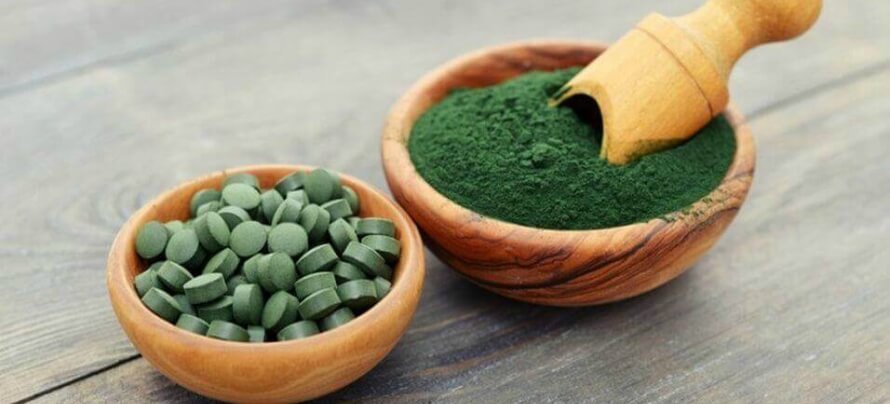
Human studies on chlorella are fairly preliminary right now and there doesn’t seem to be any “best” dosage at this time. However, about 1,800 mg of chlorella has been used a few times with success. A dose of chlorella designed to provide at least 35 mg a day of chlorophyll has shown some effects.
This seems to be in line with many vegetable (and algae, in this case) supplements where the dosage taken is somewhere between 1 to 3 grams.
What Types of Results Should I Expect From Taking Chlorella?
It’s uncertain if you can really expect any benefits with chlorella, at least in the short term. While healthy, it doesn’t seem to have any major acute benefits that would be noticeable (except maybe if the antidepressive study pans out).
Long-term you may feel a bit better (bit better mood, bit better digestion, etc.) but ultimately that’s just something that happens when you become healthier and there are many ways to go about that.
Does Chlorella Have Any Side Effects?
Chlorella, based on the human evidence we have at this time, doesn’t seem to have any side-effects. Gastrointestinal side effects such as nausea, cramping, and diarrhea are totally within the realm of possibility if it isn’t digested well but this isn’t seen commonly in studies on it.
Algae is normally something you don’t want to shove in your face due to the potential of toxins that want to assassinate your liver and brain, but the two species of chlorella that’ve been approved to be food safe (vulgaris and pyrenoidosa) as well as spirulina, another algae, seem to be safe.
What Is the Best Form of Chlorella?
Firstly, when it comes to chlorella the “best form” is probably going to be one that just openly displays the relevant factors of what constitutes good chlorella on their label.
When it comes to macronutrition, this will be the protein content, for micronutrition it will probably be the dietary minerals, and for phytonutrition it will probably be the chlorophyll.
Estimates for what’s actually in chlorella vary so widely from one source to the other that it’s damn near impossible for me to say anything about the composition here and have it accurately represent the product you’re using.
If I say chlorella is 88% protein by weight then you might get a product that’s only 20%. It’s 1% chlorophyll? Your product might be 4%, etc. Ultimately, get a product which discloses the goodies on the label and doesn’t hide them in a proprietary blend.
Beyond that, the species of chlorella you want is likely going to be chlorella vulgaris, which has been used in the majority of studies. Chlorella pyrenoidosa has also been used with similar success. Other species have not been tested.
Now, when it comes to “cracked cell wall” chlorella . . .
The wall mentioned refers to the actual cell wall of the algae. Our mammal cells have a plasma membrane that’s fluid and malleable, while plant cells have this membrane and an outer cell wall that’s more rigid, like this:
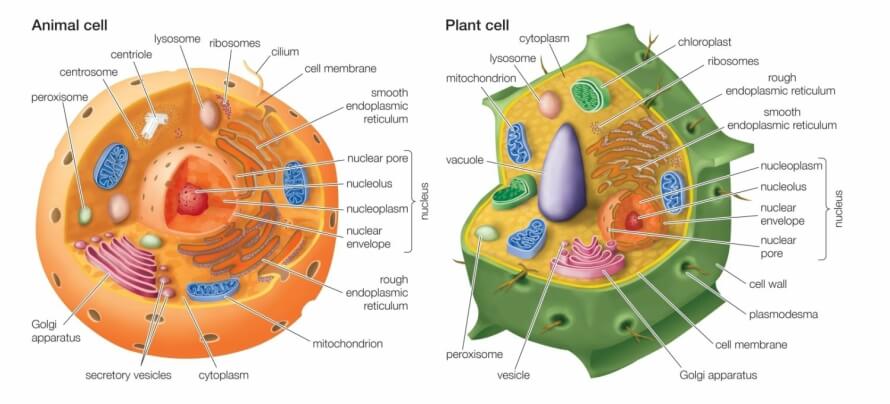
Breaking a cell wall is mostly researched on the topic of turning algae into biofuel (destroy the cell wall, get better energy output) and has been researched for chlorella as well.
It’s often said that to get the benefits of chlorella, you have to use a version in which the outer cell wall has been broken open.
That may be true, but, there’s been surprisingly little modern research on this topic. Most studies used cracked wall variants anyways, so that’s the safest bet, but other research shows it may not be necessary.
It’s long been said that chlorella protein is nigh indigestible unless otherwise hydrolyzed, but pancreatin (pancreatic enzymes) may be able to digest chlorella ex vivo.
So, with a bit of curiosity and skepticism as to whether or not cracked cell is needed I have to recommend it anyways. Better to play it safe.
The Bottom Line on Chlorella
Ultimately, it would be foolish to say that chlorella isn’t healthy in the broadest sense of the term.
However, it’s healthy like a food and not healthy like a supplement. There doesn’t seem to be any rhyme or reason with the evidence behind it, no unique or super potent direction of the supplement—it’s broadly good for a number of things (just like many foods), but not good enough on any single parameter to entice somebody to go out and buy it by itself.
If you have chlorella in your vegetable powder supplements, good, it’s doing a bit of good and is quite a convenient source of dietary vitamins and minerals. The mere fact you get a ton of minerals and vitamins at a low cost may, by itself, be enough to warrant inclusion in many science-backed vegetable extracts.
However, if you want to go out and supplement with a unique and potent health promoting compound you likely have many better choices; may I suggest spirulina? It’s also green.
It’s one of the foundational ingredients in Genesis, a greens supplement that’s far more than just another boring blend of fruit and vegetable powders.
It’s a unique combination of greens, superfoods, adaptogens, herbs, and other phytonutrients that are proven to increase immunity, heart and circulatory health, energy levels, libido, mood, and more.
It contains clinically effective doses of spirulina, as well as reishi mushroom, moringa, and maca, and several other ingredients that confer a variety of desirable health and performance effects but aren’t exactly easy to work into your diet without supplementation.
Genesis is also naturally sweetened and flavored and contains no artificial food dyes, fillers, or other unnecessary junk.
So, if you want to be healthier, feel better, train harder, and increase immunity and longevity, then you want to try Genesis today.










